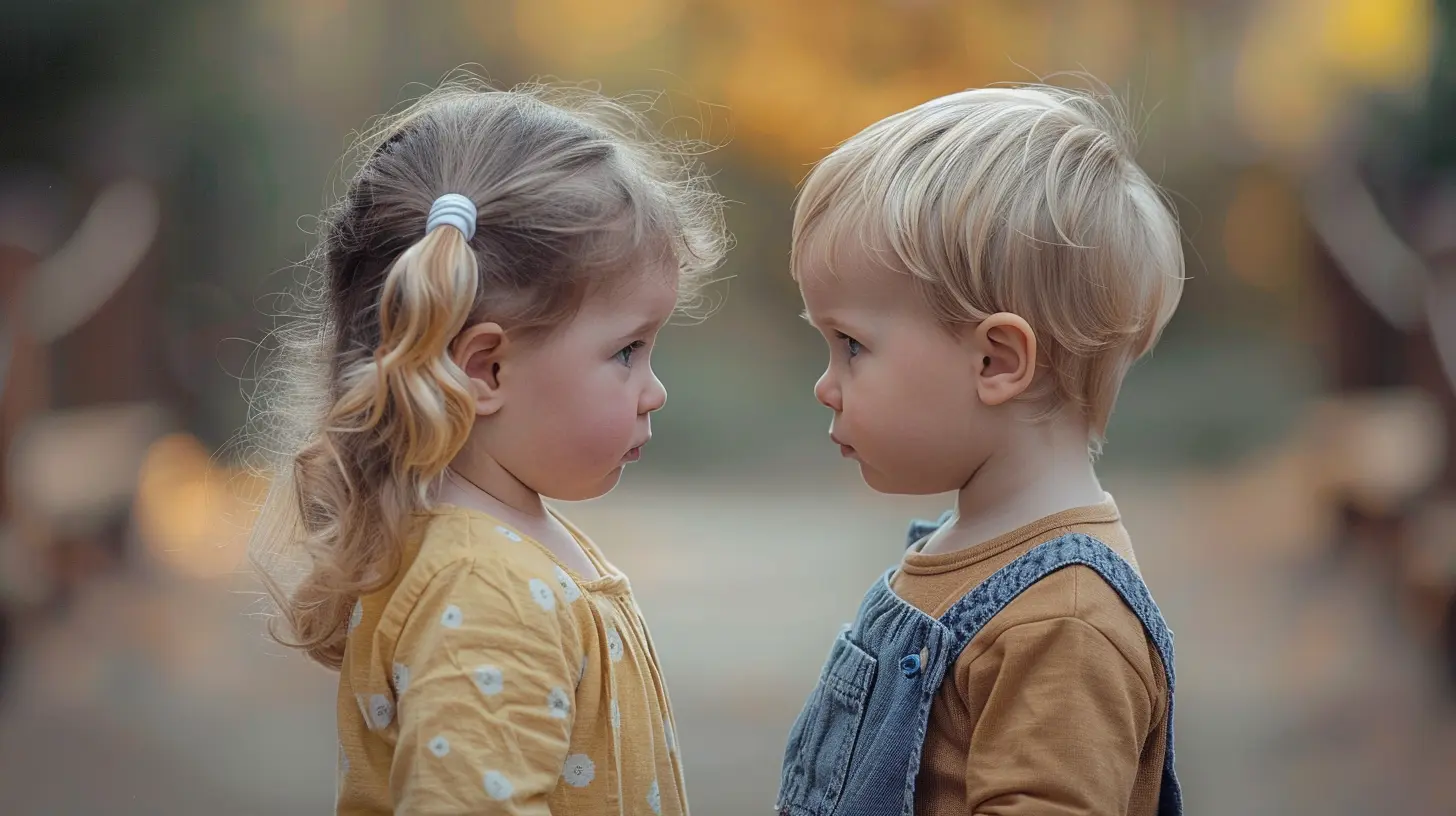Handling Toddler Jealousy: Techniques to Foster Harmony
27 July 2025
Jealousy in toddlers is as natural as their curiosity. It often shows up when a new sibling arrives, when they see a friend getting more attention, or even when they feel left out at home. But here's the good news: jealousy isn't a bad thing. It’s just an emotion, like happiness or sadness, and it can be managed with the right approach.
If your little one has been acting out due to jealousy, don’t worry—you’re not alone! In this guide, we’ll dive into simple yet effective techniques to help your toddler manage jealousy and create a more peaceful family environment. 
Why Do Toddlers Feel Jealous?
Understanding the root of jealousy is the first step to fixing it. Toddlers experience jealousy when they feel insecure, left out, or sense a shift in the attention they receive. Some common triggers include:- A new sibling enters the family. Suddenly, they’re not the only star of the show.
- Parents giving attention to another child. Even if it’s just helping with homework, it can spark jealousy.
- Sharing toys with friends or siblings. Possessiveness is common in toddlers.
- Feeling unnoticed. If mom and dad seem too busy, they might act out for attention.
Recognizing these triggers can help you proactively address jealousy before it turns into constant tantrums or clingy behavior. 
Signs Your Toddler is Struggling with Jealousy
Not all toddlers express jealousy in the same way. Some may throw tantrums, while others become distant. Here are some signs to look out for:- Aggressive behavior like hitting, biting, or pushing a sibling or friend.
- Regression, such as suddenly wanting a pacifier again or refusing to use the potty.
- Clinginess, where they demand more hugs and attention than usual.
- Acting out, like throwing things or purposely misbehaving to get noticed.
- Sulking or ignoring you when they feel left out.
If you notice these behaviors, don’t panic! With patience and the right strategies, you can help your toddler work through their jealous feelings. 
Techniques to Handle Toddler Jealousy
1. Give Them Special One-on-One Time
Toddlers crave attention, and feeling "replaced" can make them act out. Set aside dedicated time for just you and your toddler, even if it’s only 10 minutes a day. Read a book, play their favorite game, or just cuddle—this reassures them they’re still important to you.2. Acknowledge Their Feelings
Instead of dismissing their jealousy, validate their emotions. If your toddler says, “You love the baby more!” instead of saying, “That’s not true,” try responding with empathy:> "I know it feels that way sometimes, but I love you just as much as always."
Letting them express their emotions helps them feel heard, reducing their need to act out.
3. Encourage Positive Interaction with Siblings or Friends
Rather than forcing them to “be nice” to their sibling, teach them how to interact positively. Show them how to be gentle and praise them when they help. Make them feel like the “big helper” by allowing them to assist with feeding or diaper changes for a younger sibling.4. Avoid Comparisons
Saying things like:❌ "Look how nicely your little sister behaves. Why can't you be like her?"
can make the jealousy worse. Instead, focus on their individual strengths.
✅ "You’re such a great artist! Your drawing is amazing!"
Praising their unique qualities helps them feel secure and valued.
5. Teach Them How to Share – Gradually
Sharing is tough for toddlers! Instead of forcing them to hand over their toys, teach turn-taking. Use phrases like:> “Can your brother have a turn? You’ll get it right back after.”
Praise them when they share willingly, reinforcing the behavior.
6. Create a Fair Environment
Fairness doesn’t always mean equal treatment. Every child has different needs. But, avoid giving one child noticeably more attention. If one sibling gets new shoes, try to get something small for the other to prevent resentment.7. Involve Them in Decision-Making
Let your toddler feel in control by giving them choices. Ask them,> “Should we read this book or that one before bed?”
These small decisions help them feel independent and less likely to react negatively to situations where they don’t have control.
8. Model the Behavior You Want to See
Children mirror their parents. If they see you treating others with kindness and fairness, they’re more likely to do the same. Use positive language and avoid showing favoritism.
What NOT to Do When Dealing with Jealousy
🚫 Don’t punish their jealousy – It’s an emotion, not a misbehavior.🚫 Don’t ignore their feelings – They need reassurance, not dismissal.
🚫 Don’t use guilt tactics – Saying “You should be happy for your brother!” won’t help.
Instead, create an environment where they feel comfortable expressing their emotions without shame.
When Jealousy Becomes a Bigger Issue
If jealousy turns into constant aggression, frequent tantrums, or withdrawn behavior, it might be time to seek additional support. Talking to a pediatrician or child psychologist can help address deeper insecurities.Most toddlers grow out of jealousy with time, but a little extra patience and guidance can make the journey smoother for everyone.
Final Thoughts
Jealousy is just a toddler’s way of saying, “I need to feel important too!” By acknowledging their feelings, spending quality time with them, and fostering positive sibling relationships, you can help your child overcome jealousy and create a peaceful home.At the end of the day, toddlers just want love, security, and reassurance. With the right approach, their jealousy will fade, leaving behind a confident, happy child who feels cherished—no matter who else is in the room.
all images in this post were generated using AI tools
Category:
Parenting ToddlersAuthor:

Austin Wilcox
Discussion
rate this article
1 comments
Sabrina McGehee
Great article! It's so important to address toddler jealousy with empathy and understanding. Your techniques offer practical ways to foster harmony in the family. Keep up the wonderful work in supporting parents through these challenging moments!
August 18, 2025 at 3:18 AM

Austin Wilcox
Thank you so much for your kind words! I'm glad you found the techniques helpful for fostering harmony. Your support means a lot!


